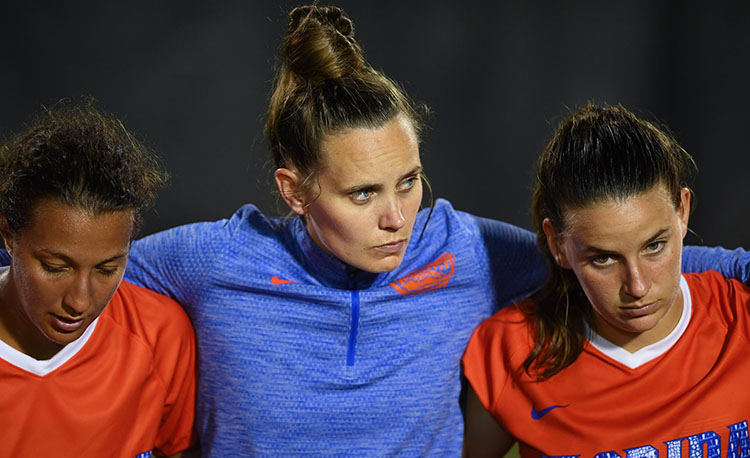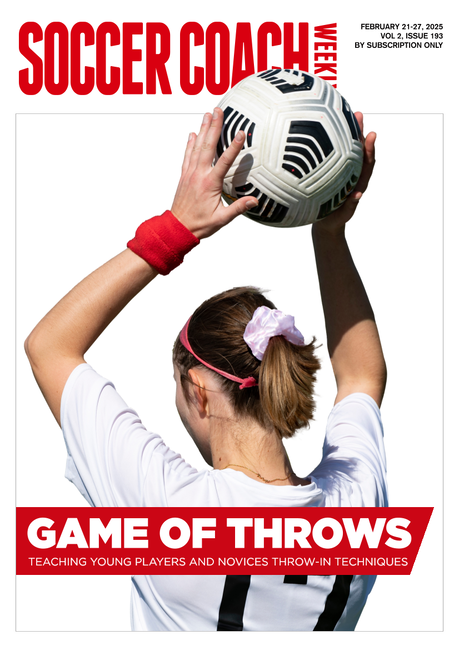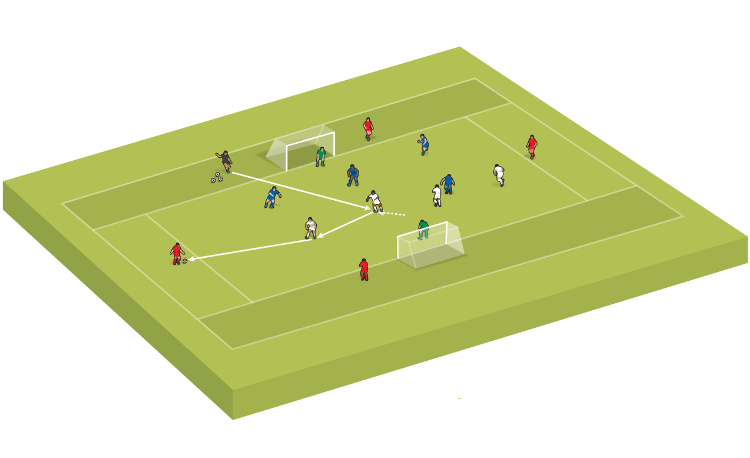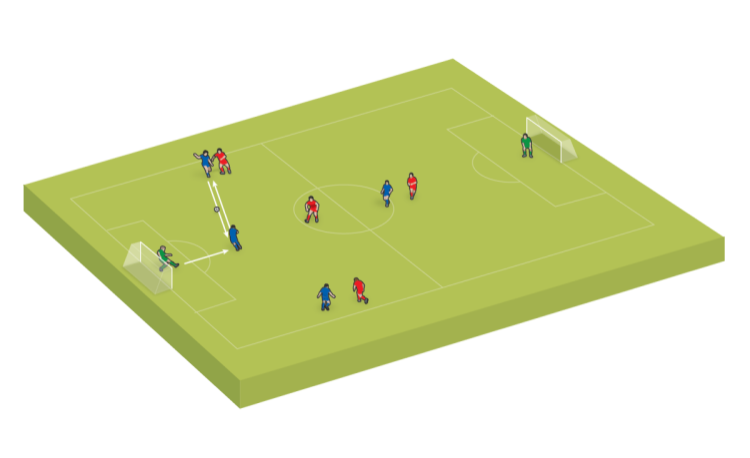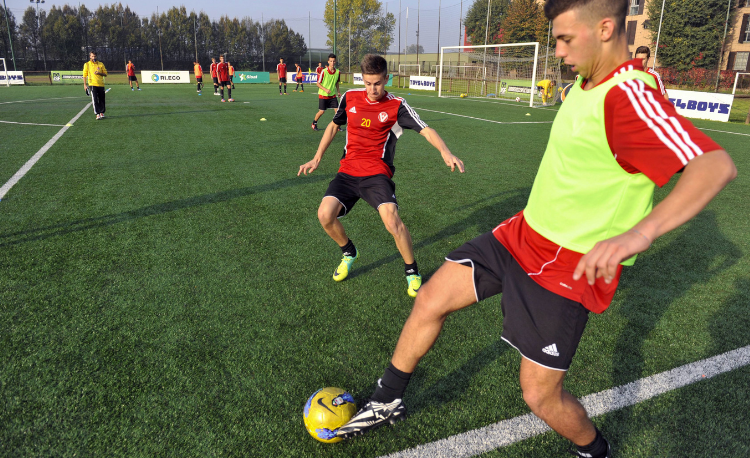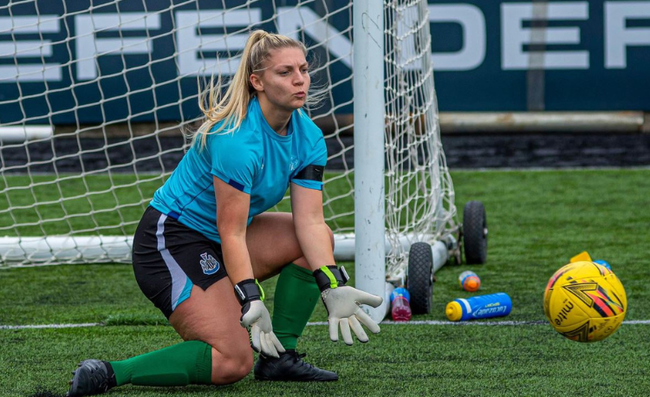Sarah Lowdon: 'I coach the person first, player second'
Ex-Houston Dash and Penn State University assistant coach Sarah Lowdon discusses her career and tips for self-improvement with Steph Fairbairn
Sarah Lowdon doesn’t do things by halves.
When Becky Burleigh - her leader for a number of years at the Florida Gators - announced her retirement, rather than buying her a gift, Sarah wrote her a book about what she had learned from her.
Over the years, Sarah has tried to take on as much knowledge as possible in order to have a sustainable career in the game.
She has the USSF A License and USC Premier Diploma, is an NSCA certified strength and conditioning specialist, an athlete development specialist and has two Masters degrees - in Exercise Physiology and Health Promotion and in Sport Management.
Her roles in soccer have included assistant coach at Houston Dash and Penn State University, various roles under Burleigh at the Gators, and state coach at South Texas Youth Soccer Association.
Sarah has come a long way, and a lot of miles, since she started kicking a ball as a young girl on the streets of her hometown, Newcastle, in the north east of England.
SCW caught up with her to ask about her somewhat unconventional career path…
SCW: Making a move to America at 18 years old, was that a culture shock?
SL: "I think when you’re 18, you’re pretty fearless. Now I’m 32 and I feel like I’m scared to make moves sometimes.
“But yeah, it was a culture shock. I went from Newcastle to Mississippi - talk about different cultures and different worlds. But football is football at the end of the day.
"It was different because I was playing in probably one of the most athletic conferences in college. The game was a lot quicker, so that was a bit of a transition.
“But when you’re wrapped up with 30 players on your team, they help you through everything. Then I transferred later to a smaller Division I college in Louisiana - again, kind of a culture shock, staying in the south.
"I had a great experience. When I played in college, it was definitely difficult. The first year was probably the hardest, but I wouldn’t change it."
SCW: How did that develop into coaching?
SL: "I was obsessed with the Xs and Os from a young age, and man-management. I played on Championship Manager for 10 hours a day when I was younger. And as a massive Newcastle United fan, I loved Bobby Robson [manager between 1999 and 2004].
"I just have a thirst for knowledge. I’ve tried to surround myself with great leaders..."
“Getting into coaching was a natural progression for me, I couldn’t really see myself doing anything else.
"I did go to university to be a physical education teacher, but I knew ultimately I wanted to coach, so that was just plan B if you like."
SCW: You appear obsessed with bettering yourself, learning what you can about the game. Why is that important to you?
SL: "I just have a thirst for knowledge. That is the path I’ve taken throughout my coaching, trying to surround myself with great leaders.
"When I first got into coaching, I didn’t really know what I was doing. So I just had this quest to surround myself with good people, who can help through challenging situations.
"Coaching is always changing; coaching 10 years ago is very different to now, and coaching in 10 years time will be very different to now. You constantly have to evolve and reinvent yourself, especially in the collegiate game in America, because you get players for four years, and then they transition out.
“Your big job is between the ages of 18 and 22. It’s one of the most influential times of development, in my opinion. You get a lot of influence.
"That’s kind of why I’m in it: you get to help people, meet them where they’re at and help them develop into better people.”
SCW: How do you sum up who you are as a coach?
SL: "I want to coach the person first, player second. I think if you do that, performances will come. It’s a bit of a long-term vision.
"Obviously, in coaching, we all know that short term you have to win and get results. But I’m a very long-term thinker.
"I would say person over player, empowering people to find their potential. Maybe I can see in them something they can’t see in themselves. I think it’s your job as a coach to do that."
Related Files
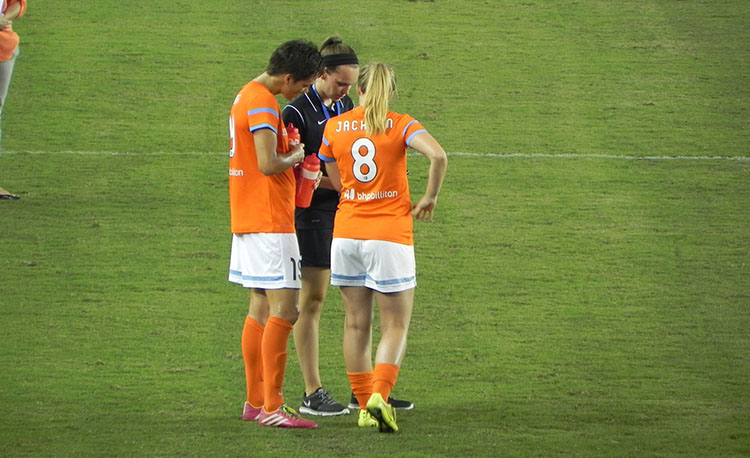
SCW: You said you were fearless. Obviously it really paid off for you. Would you advise people to just go for it?
SL: "I would but it’s not as easy as it sounds. In coaching you have to pay your dues, especially in college athletics in America - you have to start from the bottom.
"If you look at the roles I’ve taken - volunteer coach, equipment manager, back to a volunteer coach, to an assistant, to a director of operations - it’s a very unconventional path. So you have to be persistent and creative.
“At Houston, I was driving two and a half hours to training and back. There were a of couple nights where I slept in my car.
"You have to do the things no-one else is willing to do. Obviously there are things you enjoy doing, but there are also things you don’t. You have to do both.
“With the experiences I’ve had, I know I’m prepared for the next position, rather than just climbing the ladder and trying to get the next title as fast as possible.
"I think sometimes you can skip steps when you do that, where you just climb the ladder as quick as you can - whereas I’ve taken this long, unconventional route of trying to get as prepared as possible."
SCW: If you’re coaching at grassroots, you’re taking on a group of parents and so much admin, not just coaching a team. How do you guard against burn out?
SL: "One of the things I learned from Becky is understanding that if you take things personally, you’re going to have a very short career.
"I would say the other thing I learned is being able to reframe your mindset. There are a lot of uncontrollables in coaching; you can’t control the referees, or the weather, or how player X is going to play.
"You can control your subs and your coaching points. But there are a lot of uncontrollables, especially when you’re playing.
"At Houston Dash, I was driving two and a half hours to training and back again..."
"So it’s just understanding you can’t control a lot of things and sometimes you have to have a little bit of luck on the way."
SCW: What might the next step be? Maybe managing Newcastle United Women when they’re in the WSL?
SL: "I would love a return home, no doubt. It’s really exciting what’s happening with Newcastle. I think the new owners are doing a great job of being visible and interacting.
“If you asked me this question five years ago, I probably would have given an exact plan of how I expected things to pan out with my career. I’ve learned now you just can’t do that.
"I wouldn’t have expected right now that I would be in a gap in my career, in terms of a position or title or a job, but I am. And the reason is there’s nothing out there, particularly right now, that I feel is a fit for me. So I’m going to remain patient, like I always have in my career, because it’s always paid off.
“As long as I’m somewhere where I’m able to learn and have an impact, where I enjoy where I work, and work for a good administration - as a head coach or an assistant - I think I’ll be happy.
“I did this exercise a year ago, about writing all your values down and then reordering them - so is family more important than enjoying where you work? Is enjoying where you work more important than location?
"If you put all your values in one place, you can really see whether your values align with where you work. That’s something I’ve spent a lot of time doing. And like I said, if I have those three things in place, I’ll be pretty happy."
Newsletter Sign Up
Coaches Testimonials

Gerald Kearney, Downtown Las Vegas Soccer Club

Paul Butler, Florida, USA

Rick Shields, Springboro, USA

Tony Green, Pierrefonds Titans, Quebec, Canada
Subscribe Today
Discover the simple way to become a more effective, more successful soccer coach
In a recent survey 89% of subscribers said Soccer Coach Weekly makes them more confident, 91% said Soccer Coach Weekly makes them a more effective coach and 93% said Soccer Coach Weekly makes them more inspired.
*includes 3 coaching manuals
Get Weekly Inspiration
All the latest techniques and approaches
Soccer Coach Weekly offers proven and easy to use soccer drills, coaching sessions, practice plans, small-sided games, warm-ups, training tips and advice.
We've been at the cutting edge of soccer coaching since we launched in 2007, creating resources for the grassroots youth coach, following best practice from around the world and insights from the professional game.
